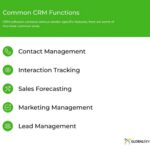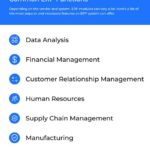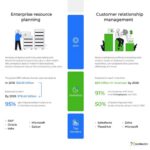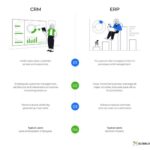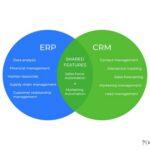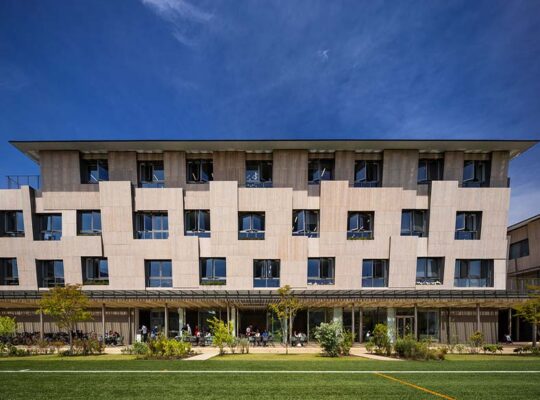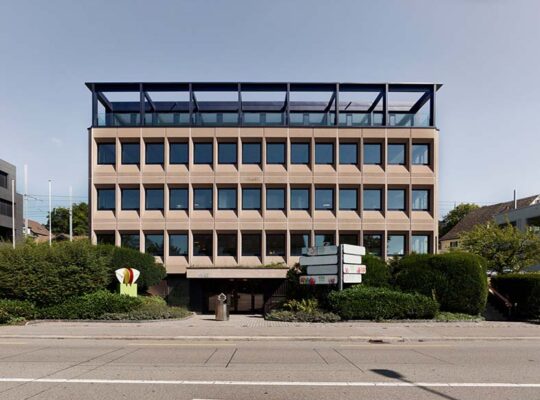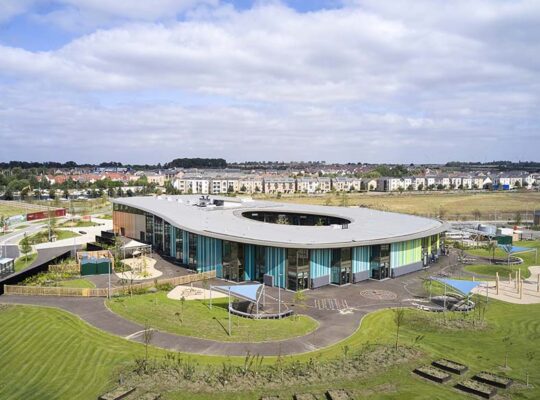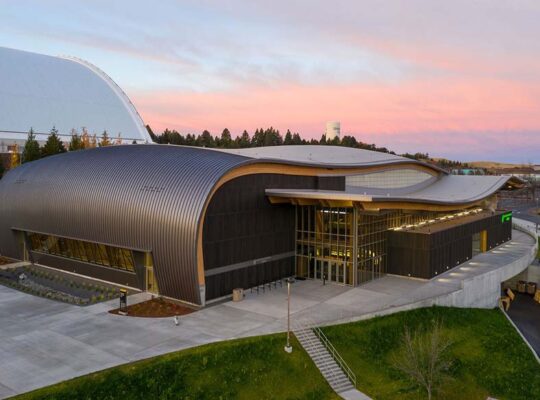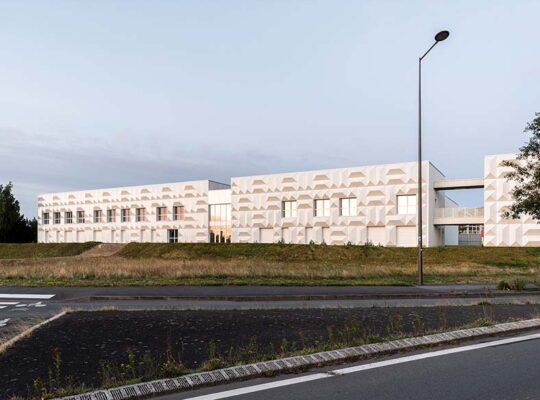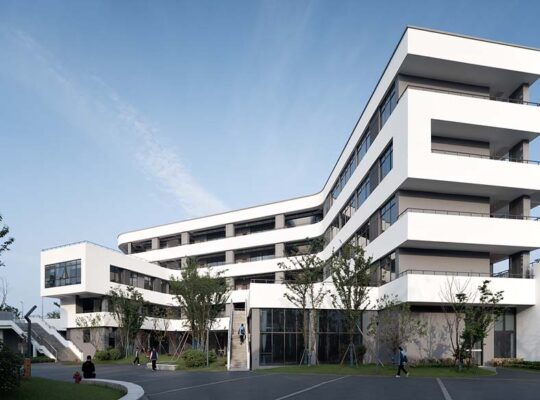In the realm of digital transformation for businesses, acronyms like ERP and CRM often emerge as pivotal considerations. But how do you decide between the two, or do you need both? This article delves into the nuances of ERP and CRM systems, providing insights to help you navigate this crucial decision-making process.
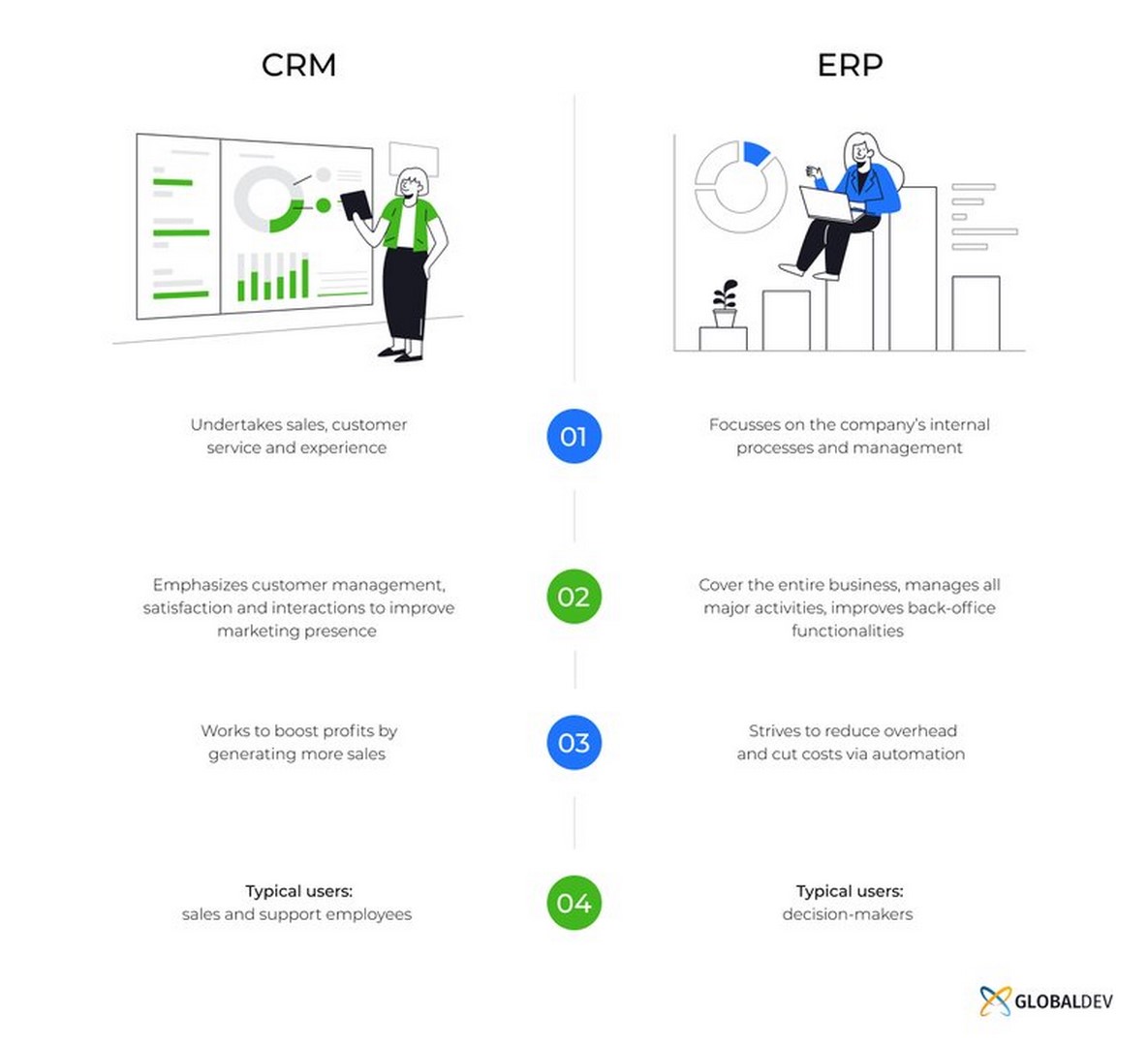
Evolution of Business Software
Gone are the days when strategy planning, resource management, and inventory monitoring were plagued by inefficiencies and errors. The advent of business software has revolutionized these processes, offering clarity and efficiency within organizations. With centralized systems accessible to all departments, businesses can now foster cohesion and transparency across operations.
Understanding ERP: Enterprise Resource Planning
At its core, an enterprise resource planning (ERP) system serves as the backbone of a company’s operations. By automating processes and eliminating paperwork, ERP systems streamline business operations. These systems enable standardized data entry and swift dissemination across departments, providing a comprehensive overview of organizational processes in real-time. ERPs function as centralized databases, encompassing financial management, payroll, accounts, and more.
The Emergence of ERP II
ERP II represents the evolution of traditional ERP systems, emphasizing web-based operations and leveraging technologies such as CRM, business intelligence, and supply chain management. This iteration, developed post-2000, embraces a more integrated and web-centric approach to business management.
Exploring CRM: Customer Relationship Management
In contrast, customer relationship management (CRM) software focuses on managing customer interactions and data. CRM systems empower organizations to cultivate strong customer relationships, enhance engagement, close deals, and generate leads. By centralizing customer information and analyzing data, CRMs facilitate personalized recommendations and targeted marketing strategies.
Integration and Synergy
CRMs can be seamlessly integrated with ERP and other systems, enabling data sharing and enhancing operational efficiency. This integration ensures a cohesive approach to customer management and business operations.
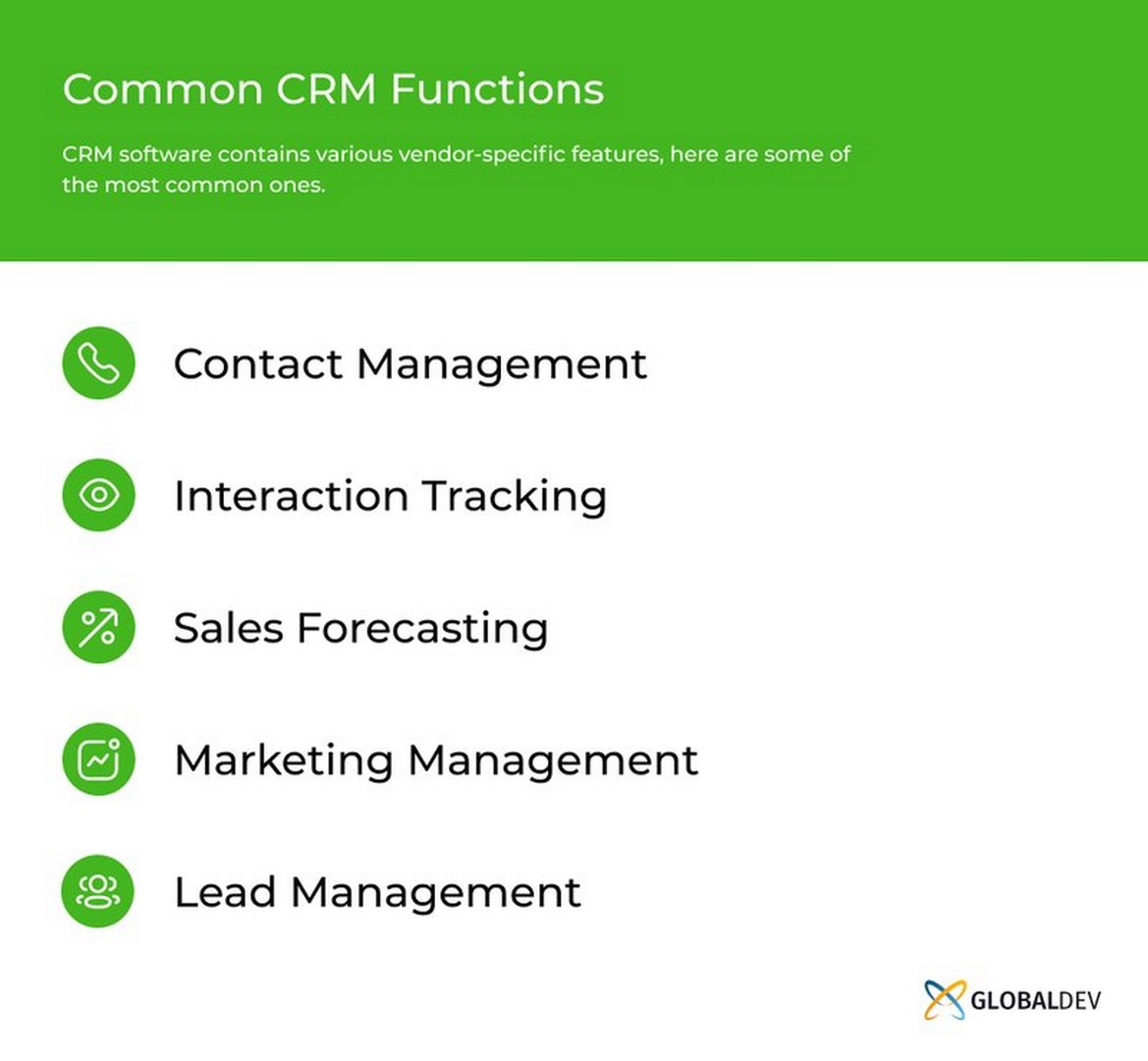
Differentiating ERP and CRM
While both ERP and CRM systems aim to increase efficiency and profitability, they operate in distinct domains.
Software Focus
ERPs primarily address internal processes and management, optimizing back-office functionalities and automating management activities. Conversely, CRMs emphasize customer management, satisfaction, and interactions, driving improved marketing efforts and customer relationships.
Profit Generation Strategies
ERPs focus on cost reduction and overhead management through automation, while CRMs aim to boost profits by enhancing sales volumes and customer satisfaction.
Performance Metrics
ERP success metrics span various business departments, while CRM metrics revolve around client acquisition and retention, offering transparent and measurable goals.
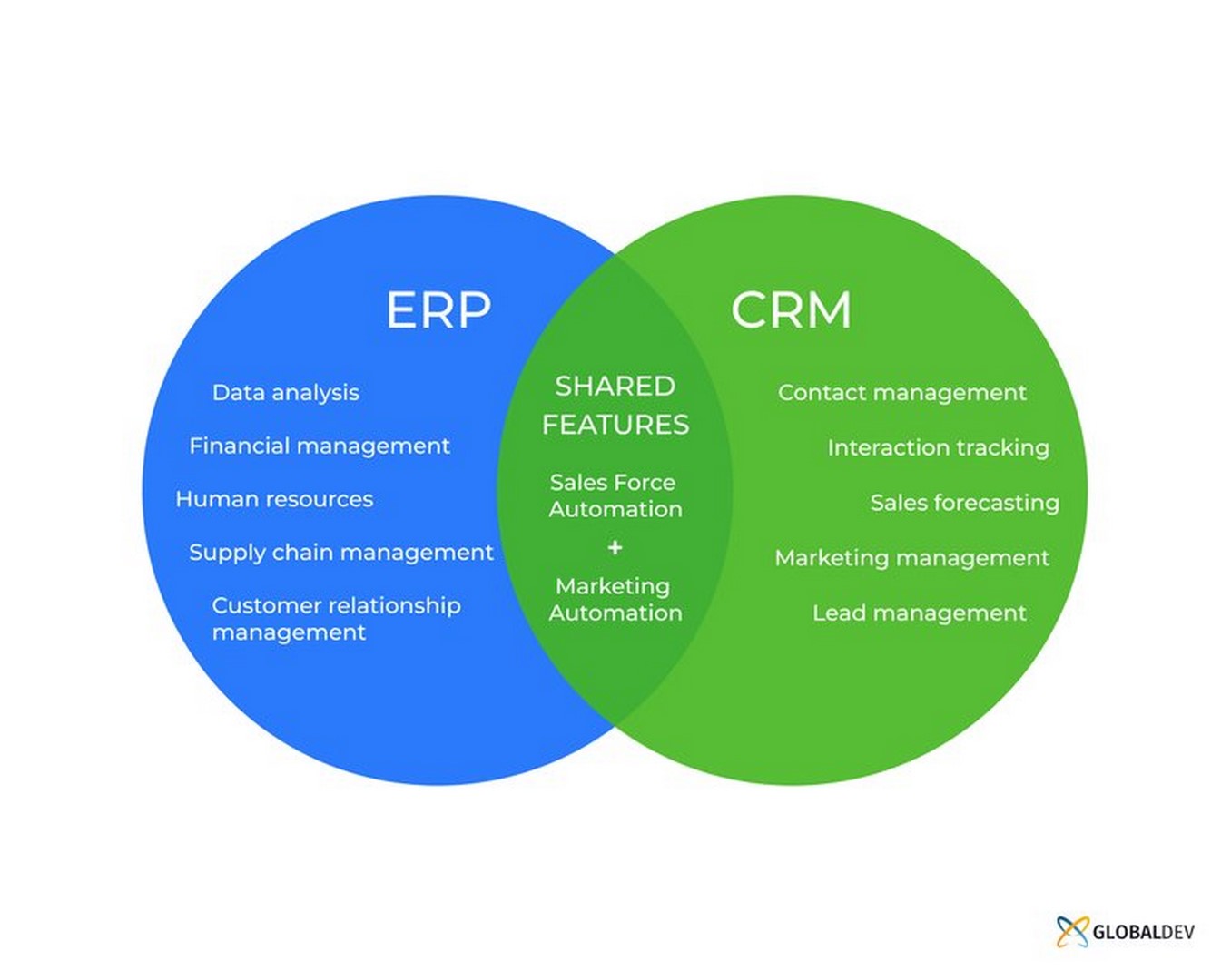
End Users
ERP systems cater to decision-makers and department heads overseeing business processes, while CRM users typically include sales and support personnel managing customer-related operations.
Common Features and Modules
Both ERP and CRM systems offer diverse modules and features tailored to business needs, ranging from data analysis to supply chain management. Key features include:
ERP Features:
- Data Analysis
- Financial Management
- Customer Relationship Management
- Human Resources
- Supply Chain Management
- Manufacturing
CRM Features:
- Contact Management
- Interaction Tracking
- Sales Forecasting
- Marketing Management
- Lead Management
Choosing the Right Solution: ERP, CRM, or Both?
The decision to invest in ERP, CRM, or both hinges on several factors, including current business processes and growth trajectory.
- CRM First Approach: For small to medium-sized businesses focusing on sales and marketing enhancement, a standalone CRM may suffice.
- Comprehensive ERP Solution: Businesses grappling with inefficiencies and disjointed processes may benefit from a scalable ERP system to streamline operations comprehensively.
Ideally, companies should consider adopting both ERP and CRM systems for holistic business management. While ERP systems address internal operations, CRMs optimize customer interactions, ensuring a cohesive and efficient approach to business growth.
In conclusion, the choice between ERP and CRM, or the integration of both, should align with current business requirements and future aspirations. By selecting the right system tailored to organizational needs, businesses can drive efficiency, profitability, and sustainable growth in the digital age.

